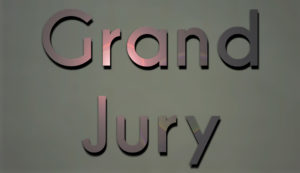The grand jury is not always relevant to criminal cases but if they are used, then it is important for you to understand their role in your case. Of course, the best way to get the details on how a grand jury will affect your specific case is to work with a criminal defense attorney who can offer a free legal consultation. Contact Law Office of Michael L. Fell at (949) 585-9055 now to learn more.
The Role of the Grand Jury
A grand jury is a panel of citizens that is called just like a trial jury is. They can be called to consider criminal or civil cases. However, their function is different than a juror on a trial jury. With a grand jury, the prosecutor presents evidence and the grand jury must decide if there is enough evidence to conclude that the accused likely committed the crime.
The grand jury is not there to decide if the defendant is guilty or innocent – they only decide if charges should be filed. If they decide that it is more likely than not that the accused committed a crime, then they will issue an indictment.
Different States Handle Grand Juries Differently
Some states use what’s known as a minority approach for grand juries. This means that the prosecutor’s only job is to provide the evidence they have that the person accused has committed a crime. If there is strong, credible evidence that may show that the accused did not commit the crime, the prosecution is not required to present it. The viewpoint is that the criminal defense attorney will have a chance to show that evidence at trial.
For example, if someone was arrested for grand theft and there were fingerprints from the defendant at the scene of the crime, and a suitcase of money in their home, that would be all they would need to show – even if the accused had a strong alibi.
The other option, which is used in most states, is known as majority view. It requires that prosecutors give the whole truth to a grand jury. If there is strong evidence that may point to innocence, then it must be divulged. However, this does not mean that the prosecutor is required to divulge every piece of evidence that could likely be used at trial by the defense.
For example, let’s say that one of the witnesses for the prosecution is a habitual liar. This may indeed be helpful to the defendant at trial, but it doesn’t directly offer proof of the accused’s innocence and the prosecutor would therefore not be required to provide it. It is also noteworthy that the prosecution is under no obligation to seek out proof of innocence – they are only required to provide information they are already aware of.


